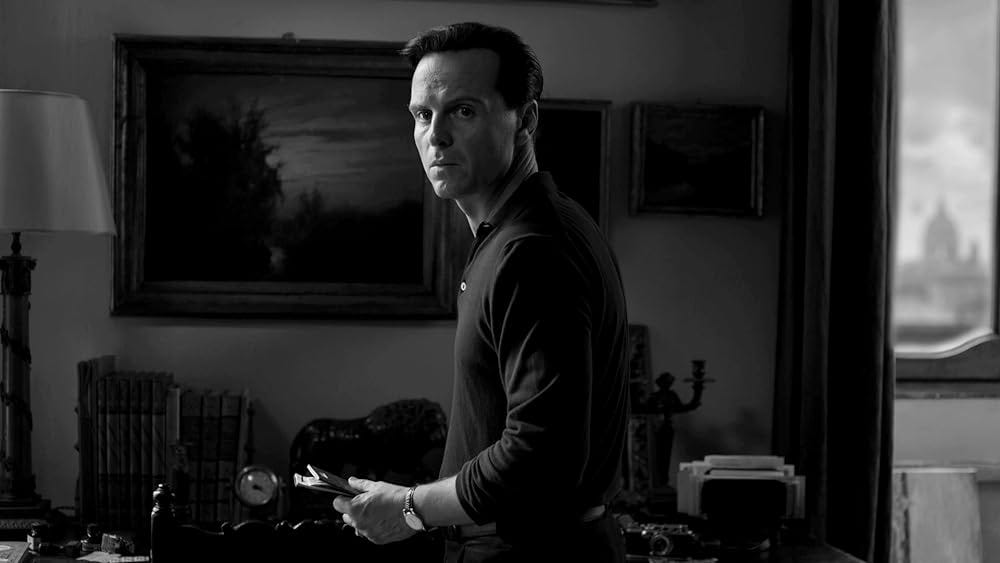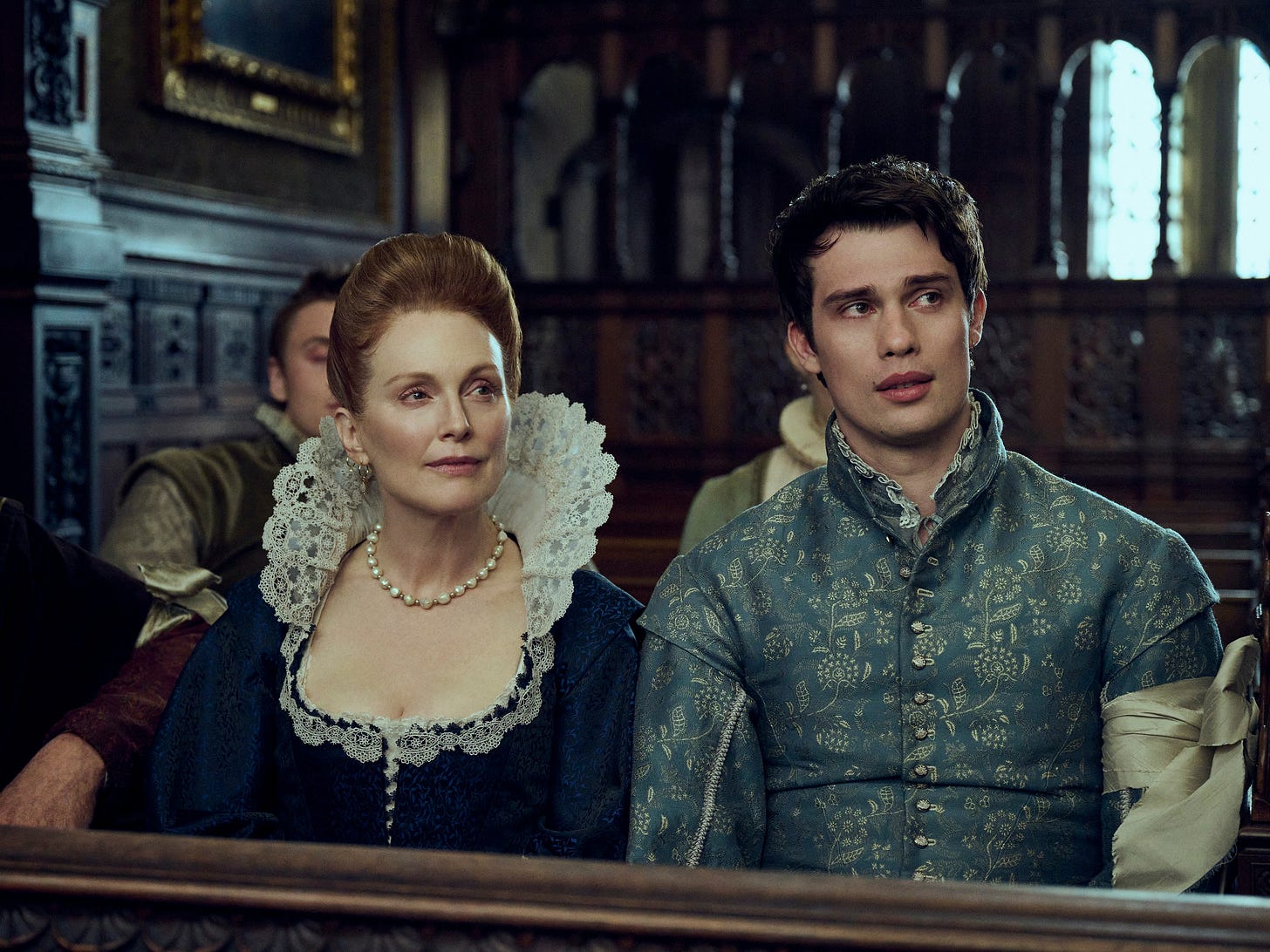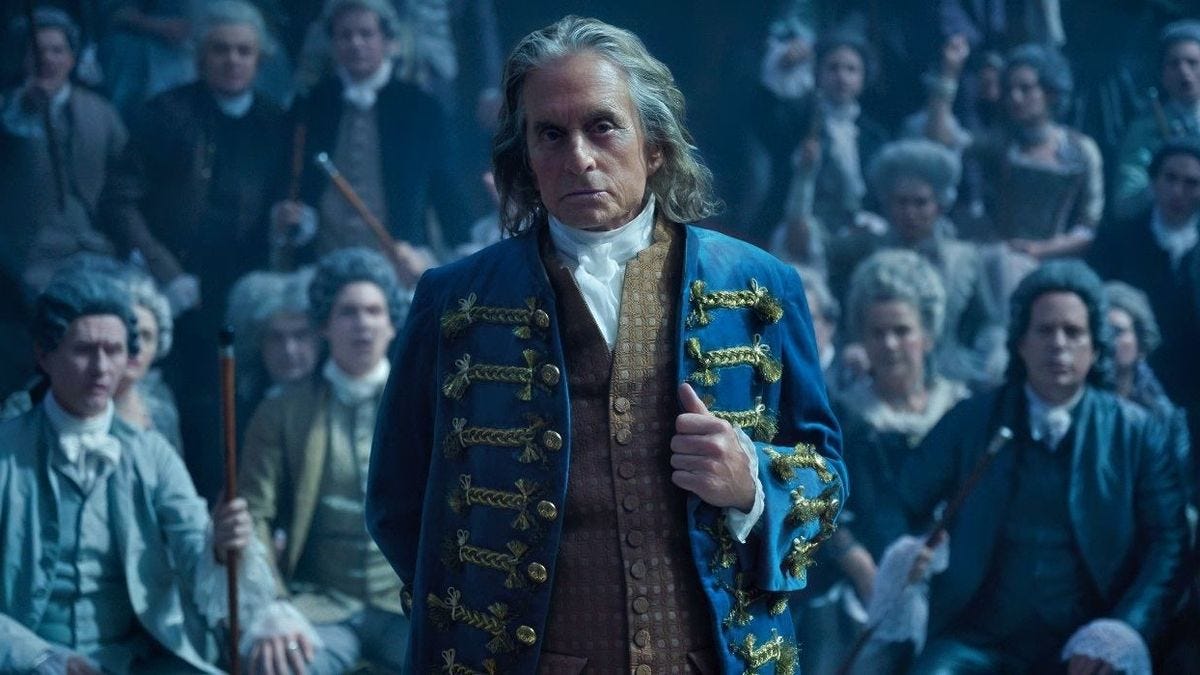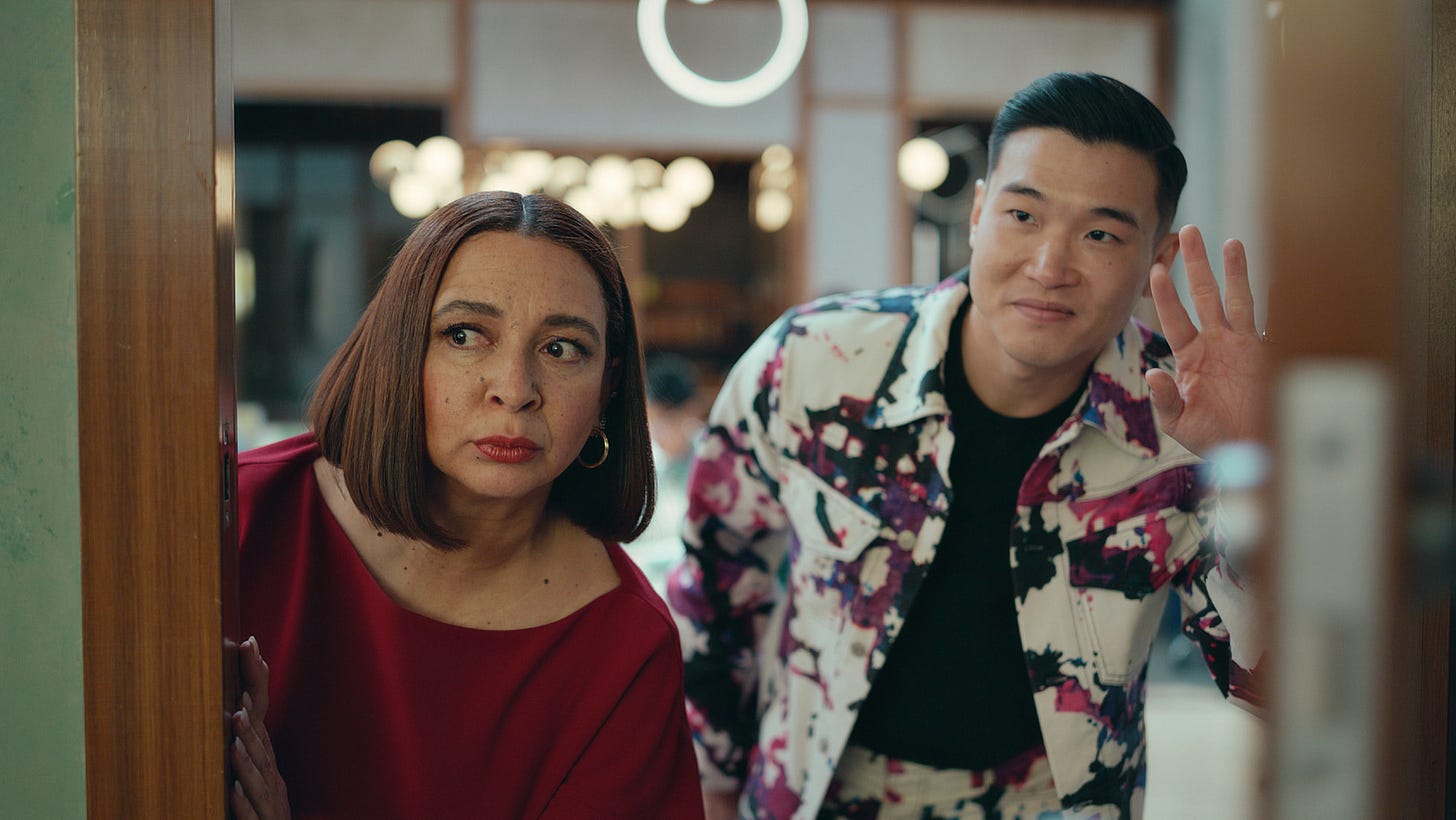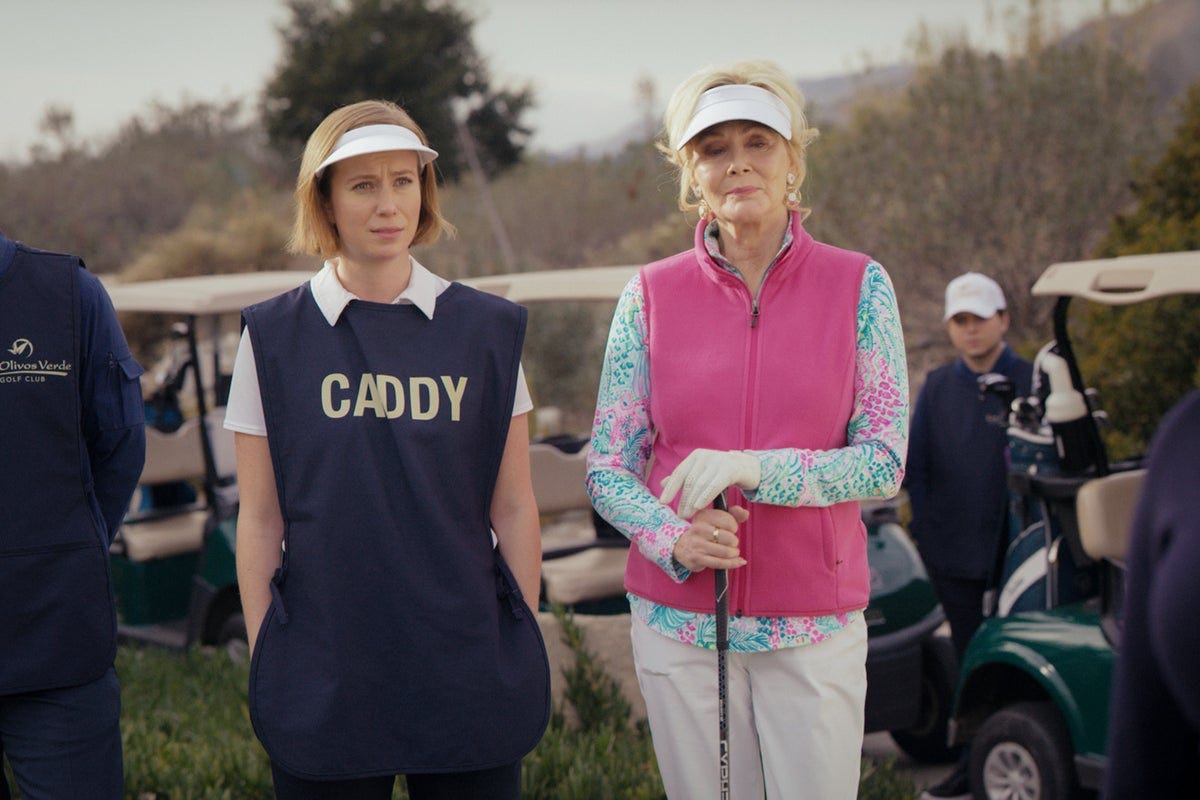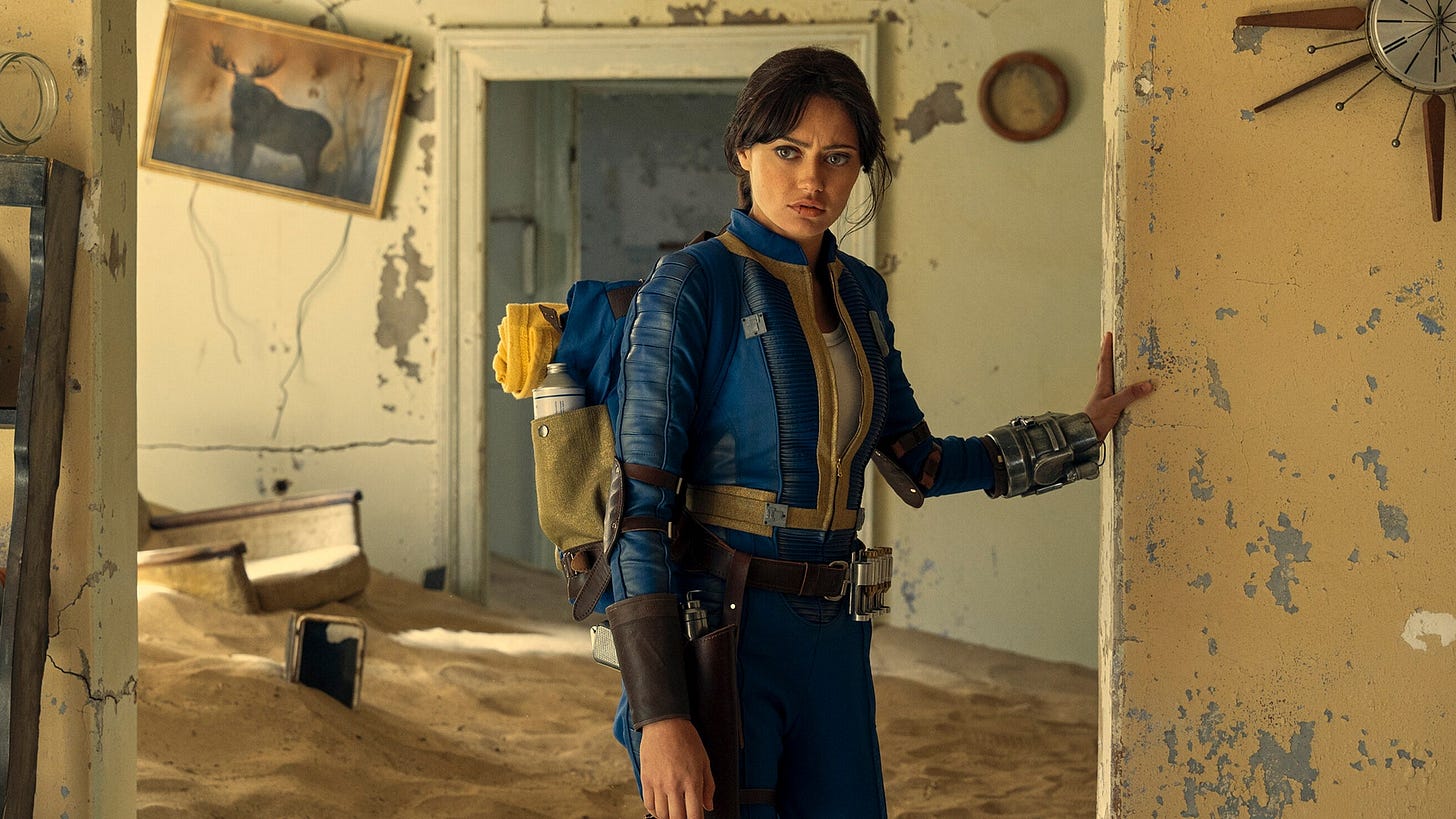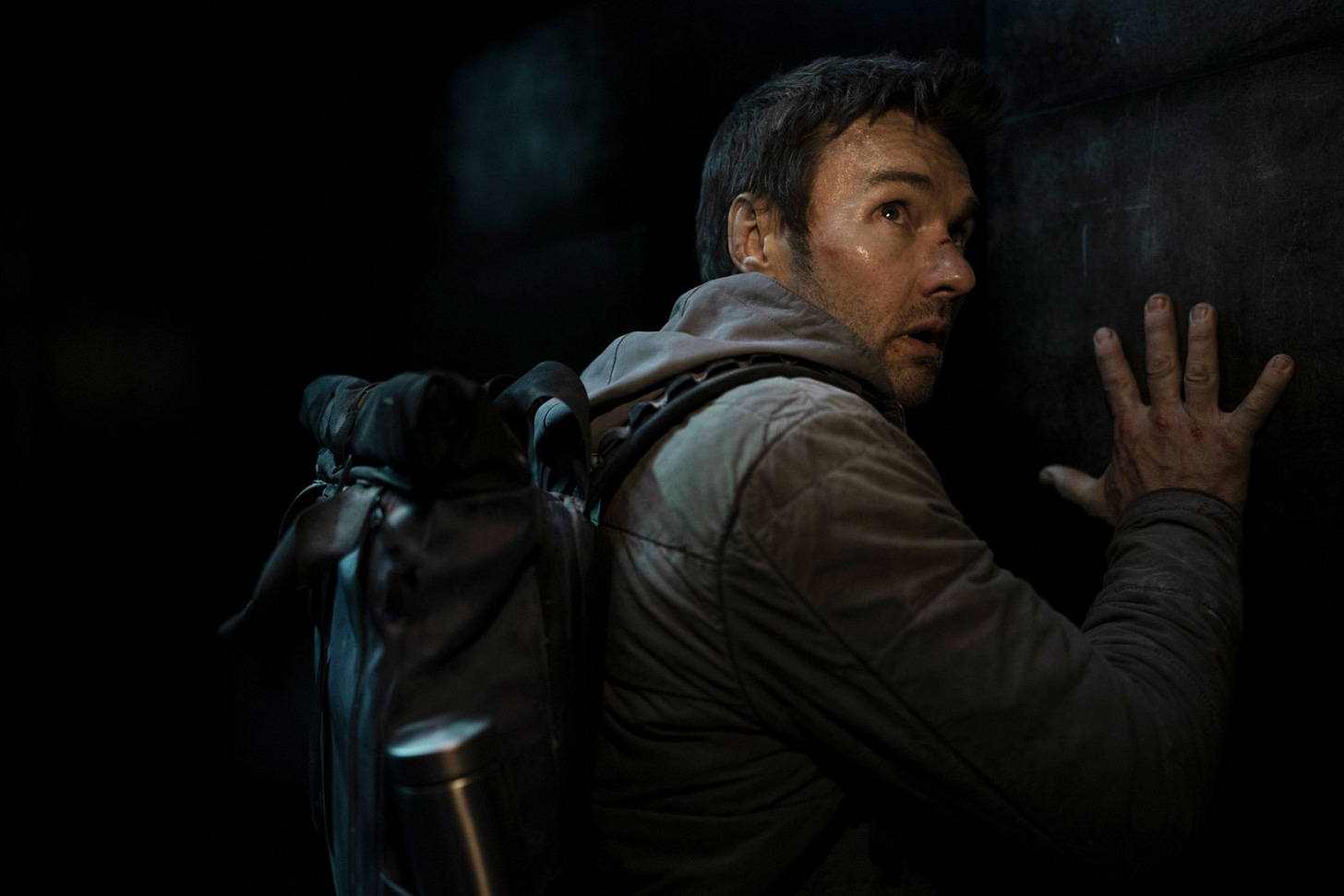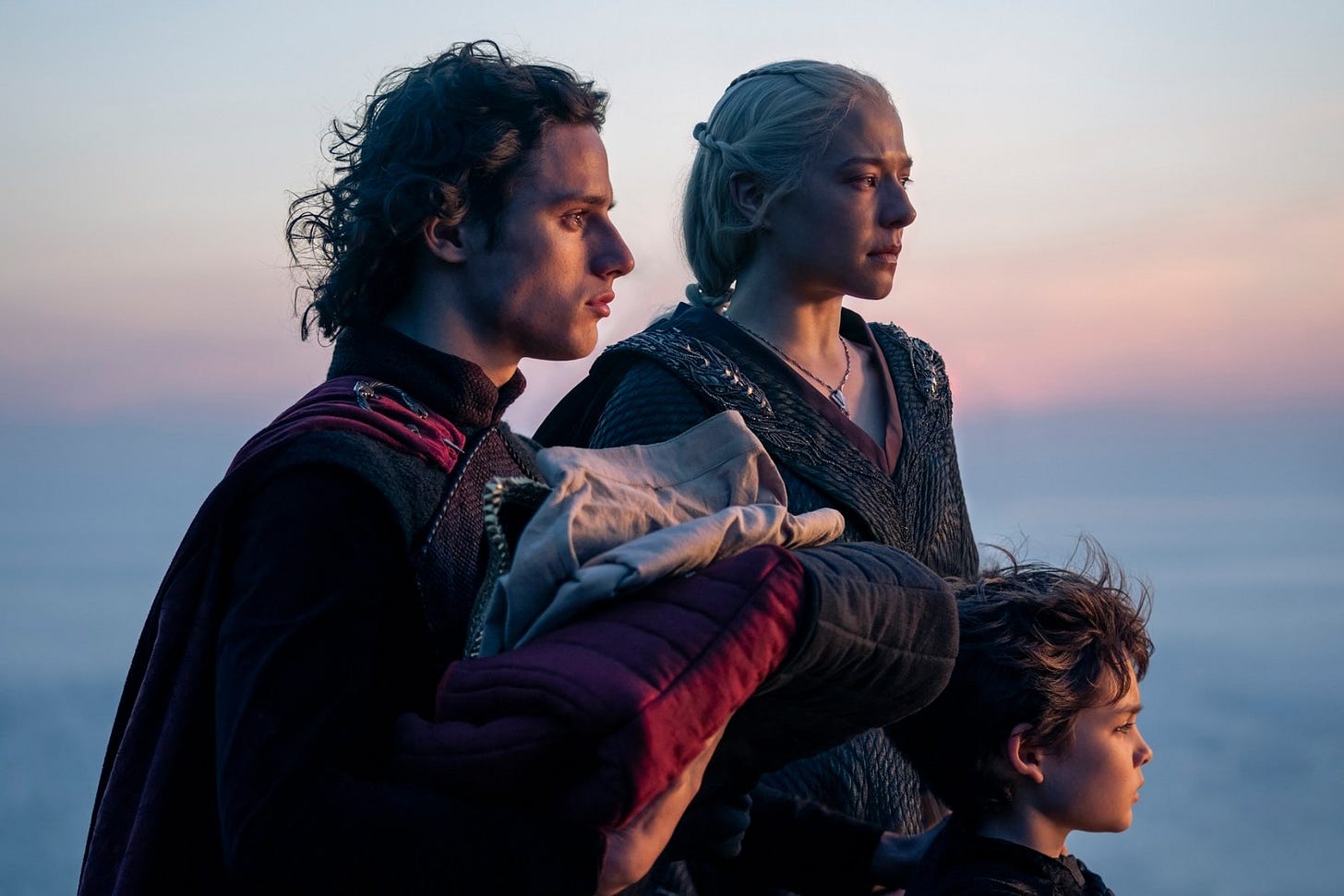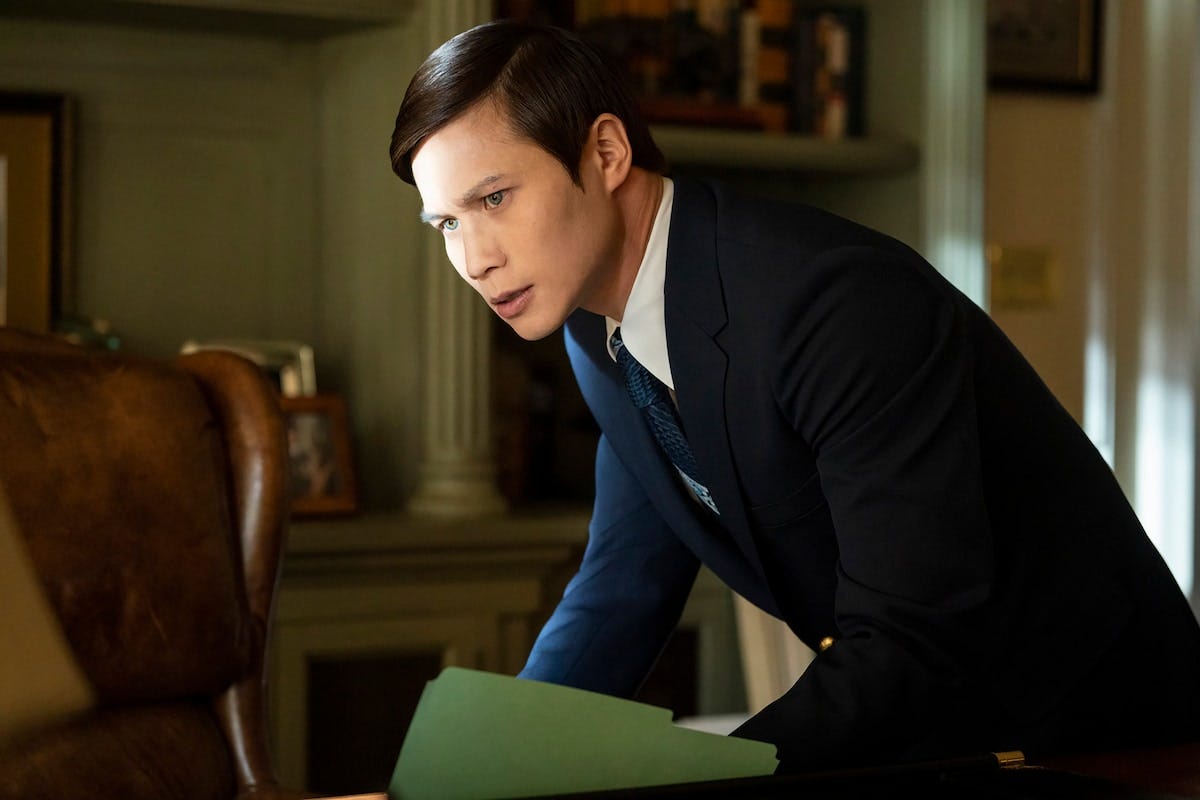Readers, will someone, PLEASE, tell the Television Academy that FX’s The Bear is not a comedy?
O but, readers, in all seriousness, what a thrill to be back with you all after a few months’ break! We have much to discuss, so without further ado…
Ripley (Limited Series)
Netflix • Drama • “Shrug off the dress”
Synopsis
An American shipping magnate unwittingly hires a grifter to convince his playboy son to return from indefinite holiday in Italy.
My take
Impressively strong, occasionally breathtaking cinematography, strategically reminiscent of the photography of Cartier-Bresson and the cinematography of Wagner (see especially Nosferatu [Murnau (dir.) & Galeen (wri.), 1922] and M [Lang (dir./wri.) & von Harbou (wri.), 1931]), sets the tone for this latest adaptation of Patricia Highsmith’s pluripotent (1955) novel The Talented Mr. Ripley. Previously adapted to acclaim by Clément (dir.) and Gégauff (wri.) as Purple Noon (1960) and by Minghella under its original title (1999), the novel here finds for the first time a long-form adaptation as an eight-episode series by Steven Zaillian, a screenwriter no stranger himself to acclaim:
with an Oscar to his name for his work on Schindler’s List (Spielberg [dir.], 1993),
an Emmy for his work on his previous limited series The Night Of (Price [co-creator], 2018), and
a list of other nominations for his work on films from Awakenings (Marshall [dir.], 1990) through Moneyball (Miller [dir.], 2011) to The Irishman (Scorcese [dir.], 2019).
To tell the truth, readers, this list of familiar hits is to me more than an academic exercise in context setting; it’s an active comfort, to know that this story, whose 1999 adaptation is a personal all-time favorite, was brought to the screen again by provenly capable hands. After all, the novel is an inherently difficult piece to adapt. The central figure, Thomas Ripley, is the canonical antagonist, an at least partially unscrupulous social manipulator, whose predatory survival tactics (e.g., duplicity, impersonation, fraud) are on full display from his introduction, especially in this latest adaptation. The slow reckoning the consequences of those tactics, especially when strategically deployed, then take on a small set of family members and friends only adds to the bitterness audiences might naturally hesitate to taste in Ripley’s character.
But I’m here to say, readers, that the flavor is worth the bite. Zaillian’s take on this now classic story of friendship, love, and betrayal is an effective one, generally ready to play with the audience’s omniscience for becoming both a gift and a guilt at its awareness of and its complicity with Ripley’s antagonism. And, unlike Matt Damon and Alain Delon, Andrew Scott downplays Ripley for the audience. Finding authenticity in the effacement of himself from the page, Scott chooses to hide himself as Ripley, suggesting in his own small and carefully calculated statements that he may not even really be there at all, until — spoiler alert — those inevitable moments when his managed and metered disposition fractures into outbursts like a raw survivalist’s seizures of power and control. While Scott’s performance finds some difficulty in trading toward those extremes with clarity, his deliberate methodical demeanor does create a through-line for the series, one that keeps tensions successfully high behind the wall of his intentional inscrutability. Frankly, just Maurizio Lombardi’s only marginally more scrutable Inspector Ravini is a competent match for Scott’s talents as Ripley on screen, the pair forming some of the series’ most dynamic scenes in their long quiet wrestling match over identity, veracity, and culpability. I’m extra thankful Zaillian chose to work closely with Robert Elswit on demonstrating the subtlety of their exchanges (and others) in the visuals; Elswit’s Rich-Pick-nominated and Oscar-winning work on Anderson’s (2007) There Will Be Blood still looms large in my memory for the cinematographer’s excellent knowledge of distance, scale, and space — a knowledge which, even when playing small, serves him and the story quite well.
Really, readers, I can fault only the relatively lackluster performances of Johnny Flynn and Dakota Fanning as supporting characters Dickie Greenleaf and Marge Sherwood, respectively. Flynn’s dispositional insouciance as Dickie rarely, if ever, reaches the heights Jude Law once did as the character; preferring instead an almost catatonically removed lackadaisy to his trust-funded permanent holiday in Europe, Flynn’s Dickie attempts to play harder into the character’s alleged despondence far more than ever before, synchronizing with the overall tone of the piece perhaps but sacrificing the attractive energy that necessarily should have pull others in his life to his side, others including Ripley himself. At least Flynn’s offense is small in comparison with Fanning’s; her rigidly circumspect Sherwood rarely if ever gives Scott’s Ripley a break from the scrutinizing doubt and suspicion her eyes affix to him from the moment they first meet. Sullen and routine, this one-note characterization, however double-layered, is perhaps the worst part of this generally quite stirring revival.1
Temperature check
Hot
Mary & George (Limited Series)
Starz • Historical Fiction • “Bodies are currency”
Synopsis
A savvy widow aspires her most attractive son into the bed of England’s cock-struck king, James VI of Scotland, as a vehicle for her family’s prosperity against death, disease, and domineering competitors.
My take
Weak, almost anemic cinematography can’t erase Julianne Moore, who is in fine form in this latest costume drama about the British aspirants who schemed to consort with the King in post-Tudor England. Quite at home with the deliberately period dialogue, Moore fingers the keys of her lines with her added finesse of an accomplished pianist, whose expressive competency makes even foreign melodies immediately accessible to domestic ears. Were it not for her centerpiece performance, I wonder whether we’d have more than prurience to thank for any interest in this new series — which, to be clear, readers, is far less a dig than an honest note about the series’ stance on the ambiguous immodesties of the day, when bodies were explicitly currencies on which to live — not an unrelatable state of the world to anyone conscious enough of timeless social dynamics (see, for example, Kerrigan and Seimetz’ [2016-2017] The Girlfriend Experience), but certainly a foreign state to anyone whose HR departments and whose immersion in our common cultural politics are at pains to distinguish merit from appeal. Perhaps unfortunately for himself, actor Nicholas Galatzine, most recently found bleating in Seligman and Sennott’s (2023) Bottoms (see my take here), finds himself in the center of that cross-way. He must know that art imitates life, right?
At least, for us, readers, this particular imitation is a good one on paper: In adaptation, Professor Benjamin Woolley’s (2018) historical account The King’s Assassin, which characterizes the real relationship between the United Kingdom’s first Stuart monarch and his closest companion, George Villiers, is just the passionate take on potentially regicidal intrigue we’re fascinated to learn.
Temperature check
Tepid
Franklin (Limited Series)
Apple TV+ • Historical Fiction • Ex ūnō plūrēs, or Poor Richard’s History
Synopsis
The founding father shepherds his foundling nation through the perils and perks of French courtship in the name of victory over Britain.
My take
Unfortunately, it seems that Michael Douglas and the actors playing his American relatives in this new series from Apple TV+ about the origins of our nation believe that a period-accurate demeanor and accent, not to mention a strict adherence to Franklin’s ornery plainness, need remove all charm from their performances, lest they be accused of infidelity to Poor Richard’s memory. It’s not as if Douglas couldn’t provide personality; even setting aside his forcible Gordon Gecko (Wall Street; Stone [dir.] & Weiser [wri.], 1985), we fondly remember:
his self-assured President Andrew Shepard (The American President; Reiner [dir.] & Sorkin [wri.], 1995),
his startled but tenacious Nicholas van Orton (The Game; Fincher [dir.], Brancato, & Ferris [wri.], 1997), and
his rumpled but endearing Professor Grady Tripp (Wonder Boys; Hanson [dir.] & Kloves [wri.], 2000),
whose myriad personalities testify to the actor’s true abilities. So, it puzzles me, why here, while sinking his teeth into perhaps one of the meatiest underperformed roles in the popular American culture — i.e., the man who is the literal face of the $100 bill, a contemporary symbol of wealth and success so common in our culture that the slang terms for those qualities still keep his name, and the only founding father with any lasting aplomb2 — does Douglas deliver his lines with as much interpretation and affection as an absentee elementary school student reciting Hester Prynne?
At least among the French character actors, notably (1) Théodore Pellerin playing the Marquis de Lafayette and (2) Ludivine Sagnier playing Anne Louise Brillon de Jouy, we can find healthy doses of personality, wit, and charm enough to salvage our otherwise fleeting interest in this once promising competitor with HBO’s legacy masterpiece miniseries about the period, John Adams (Hooper [dir.], 2008). Honestly, readers, especially bearing in mind that one of Franklin’s own two writers (Kirk Ellis) also wrote John Adams, I don’t know how to adequately explain why Franklin flops so hard here; all I can say is that the limpest material whiffs of the dullest passages in Korder’s previous work, Perry Mason (Jones & Fitzgerald [creators], 2020 & 2023; my last take here), like a perfume bottle repurposed and never quite rid of its scent.
Sadly, attractive costumes aren’t sufficient distraction.
Temperature check
Cold
Loot (Season 2)
Apple TV+ • Comedy • Philanthropy
Synopsis
A formerly idle billionairess tries to steer the reins of fortune towards those in need, both systematically and circumstantially.
My take
It’s rarely a displeasure, to see Maya Rudolph take to the screen, be it center stage or downstage chorus; and, it seems from this past week’s announcement of the Emmy nominations, the Television Academy feels the same way: Rudolph is not only nominated this year for her season-redeeming leading performance in Loot, but also for her supporting voice acting in Big Mouth (Goldberg, Kroll, Levin, & Flackett [creators], 2017-present; my last take here) and her memorable guest hosting and music-writing for Saturday Night Live (Michaels ]creator], 1975-present). The woman is at the top of her game, and perhaps for her alone is this season of Loot worth spending any time on. Sure, the series has its pedestrian charms: twee rivalries, office romances, gay sass, and billionairess eleganza — including repeatedly humorous potshots at guest star chef David Chang — but other than a sardonic but upbeat attitude there’s hardly anything these charms offer you couldn’t find similarly on offer elsewhere, especially in familiar series past (e.g., The Office [Daniels (dev.), 2005-2013], Will & Grace [Kohan & Mutchnick, 1998-2006], Please Like Me [Thomas (creator), 2013-2016]). Unlike The Bear (my take on the new season immediately below), which through its own evident talent is able to integrate such past familiarities into a new and rewarding experience, Loot’s own interest in and recipe for success is only the comedic equivalent of a mediocre buffet: preplanned, impersonal, and entirely dependent on the service. At least, lucky for us, Rudolph serves well.
Temperature check
Tepid (barely)
The Bear (Season 3)
Hulu / Disney+ • Drama • Chop, Simmer, Serve
Synopsis
Memories like waves erode the sands beneath the feet of a determined restauranteur and his consterned family and staff.
My take
Like it or not, The Bear is defining this moment in culture. Article after article on the series’ third and current season (e.g., Han & Fienberg, 2024; Steinberg, 2024; Holmes, 2024; Bove, 2024; Nicholson, 2024) focuses how “divisive” the show has been among critics and audiences, a proliferation of commentary that anyone paying attention will recognize as confirmation that the previously universally acclaimed piece of media has done its job: pushing on the timid boundaries that would otherwise confine its future within the cycle of its earlier successes, or within the domain of common comforts. No one would sponsor such a wave of articles, were the show still common and comfortable; it’d simply not be worth the (e-)ink. It’s exciting, really, if you can step back from the fray of it all, to behold the position the series now finds itself in. As Angie Han writing earlier this month for the The Hollywood Reporter so aptly put it, “Reports about the death of the monoculture notwithstanding, for the past few years it’s seemed the one show everyone could agree on was FX/Hulu’s The Bear.” The new monoculture it is; defining it is.
However — let’s be clear, readers — “defining” here means less “declaring from nothing” than “refining from something;” The Bear’s influence and mark on this particular moment in our common history is less a step change in the course of our collective cultural trend-line than a subtle distillation from the noise of the rushing cataract of the mainstream, a reduction afforded only by sheer patience from the otherwise “fast-paced” nature of our modern society, to produce a purposeful return back toward authentic meditation on being and becoming. Westworld (Nolan & Joy [creators], 2016-2022) opened the door, with its cosmic “reveries;” psychological dramas for years prior had investigated the duality of our external and internal lives; and a perennial, perhaps natural interest in food and its creation has kept reality show and scripted series alike afloat, from Top Chef (Cutforth & Lipsitz [producers], 2006 - present) to Bob’s Burgers (Bouchard, 2011 - present). The Bear lives well within the grooves and patterns of these otherwise distinct traditions, borrowing as much from now esoteric classics like Chantal Akerman’s (1975) Jeanne Dielman, 23, quai du Commerce, 1080 Bruxelles as it does from still popular fare like Chef’s Table (2015-2022). Nothing about the work in The Bear is new per se, except that (like any amazing dish) it integrates familiar ingredients in a new and attractive way.
For me, then, saying The Bear isn’t revelatory genius isn’t in any way to take away from the sincere quality of the work that the series, now for a second season,3 delivers onto our common cultural mainstage; no, I speak about the traditions in which The Bear so clearly follows, only to recognize that the success and the appeal that the series has had are the long-expected manifestations of an increasingly psychologically aware and introspective society, wherein fascinations with the finer points of our food reflect a meticulous attention to the traumas of our past (lest, or perhaps because, they become the traumas of our future). Like an animal superficially healed from its injuries but still obsessively licking those old wounds, the broadest we and The Bear now treat our personal and shared social traumas like our vaguely misanthropic muses; and it’s The Bear’s primary accomplishment as a narrative fiction, to have allowed itself to experiment with and find therein a valuable chemistry in wading subjectively through those traumas, beyond where its specific cultural predecessors – e.g.:
In Treatment (Garcia [dev.], 2008-2010, 2021),
The Sopranos (Chase [creator], 1999-2007),
Frasier (Angell, Casey, & Lee [creators], 1993-2004),
Shameless (Abbott [creator], 2011-2021)
— ever really dared to go. Each of those series preferred instead to create a hard and safe objectifying distance between that traumatic imagery and its audience. The Bear, on the other hand, clearly rejects the need for that distance; instead, like the eponymous restaurant that it documents, the series entreats and induces us too to experience its flavors firsthand, or in as nearly true a firsthand as modern third-person storytelling devices will allow. No longer mere witnesses to the shadows on the wall, we audience members dance in the darkness among them.
And perhaps that proximity to darkness is all too real, all too threatening, for some viewers and critics who land on the other side of the putative “divide”; but at least here, at Rich Reviews, we revel in the flickering brushes against even the darker crevices in our own individual platonic caves The Bear uses its characters to paint, and we want only that the Television Academy recognize this third season at next year’s ceremony for the esteemed and serious DRAMA that it is.
Temperature check
Hot (scaldingly so)
Hacks (Season 3)
Max • Comedy • “My sister Veronica and I had this double act….”
Synopsis
The promise of an ever-ascending career strains the relationship two comediennes share with anyone outside themselves.
My take
With a stellar pair of premiere episodes that had me liking even Hannah Einbeinder’s acting — and I’ve never said that before — Hacks succeeded its second season’s own genre-defying success (see my take here) with yet another excellent season, keeping it safely at the top of at least my list of (genuine) comedy series this year. Were it not for the category fraud behind Ayo Edibiri’s nomination for The Bear, Jean Smart should expect to handily win her third consecutive Emmy award for her leading role in this series. My sincere compliments to the writers, the editors, and the casting directors, who put together such smart and capable humor, especially when so gloriously delivered as by this season’s guest stars, including Christina Hendricks, Helen Hunt, and current Emmy nominee Christopher Lloyd. I’m already looking forward to Season 4.
Temperature check
Hot
Fallout (Season 1)
Amazon Prime • Science Fiction • Detonation Nation
Synopsis
A prim naïve, a downcast solider, and a determined outlaw refuse to conform with the strictures of their post-apocalyptic lives.
My take
After Jonathan Nolan’s last project imploded in a fuss of its own detritus, it’s been a question of longevity, to wonder whether the unique vision he once shared with his brother (on projects from their joint début, Memento [2000], to their last collaboration, Interstellar [2014]) could survive the pair’s partition on both sides of the divide. Christopher’s latest project (Oppenheimer, 2023; my take here) earned him the ‘Best Director’ and ‘Best Picture’ Oscars (among other prizes). Could Jonathan’s new Fallout, an adaptation of the video game series of the same name, bring him counterpart trophies for ‘Outstanding Drama Series’ and ‘Outstanding Directing for a Drama Series’ at this year’s Emmy Awards? My guess, readers, is no.
Under Jonathan Nolan’s directing, the premiere episodes of Amazon Prime’s new series are certainly inviting and dynamic. The production design of the elite midcentury L.A. living room that quickly gives way to a retrofuturistic Californian wasteland paints a colorful context for the plot points to come; bright colors and background jokes confidently risk aplomb, nodding to the series’ digital and interactive origins, and, while, sure, the visual conceit is a bit “paint by numbers” — with primary colors so bold in cases that one wonders how the characters don’t stop to behold the moments in their world that aren’t tarnished with the age and decay of a nuclear aftermath — it’s exactly that suspension of disbelief that we lend the show in those cases, that successfully translates the charm of its source material. Moreover, the adaptation itself — by new collaborators Geneva Robertson-Dworet (best known for co-writing Captain Marvel, 2019) and Grant Wagner (best known for co-writing Portlandia [Armisen, Brownstein, & Krisel (creators), 2011-2018] and Silicon Valley [Judge, Altschuler, & Krinsky (creators), 2014-2019]) — did make me want to know more about what would happen after the premiere episode; sufficiently snappy, the writing (at that point at least) accomplished all the world-building and character-building any premiere would need, to sustain an engaging series thereafter.
However, beyond the premiere, the full breadth of the series fumbles at being anything more than a colorful “entertainment” (in the strictest sense of that word) for anyone in its audience. Perhaps inhibited most by an obvious attempt to hew close to lines once cut by Lost (Lieber, Abrams, & Lindelof [creators], 2004-2010) — whose own Emmy winning actor Michael Emerson all too coïncidentally guest-stars in this new series — Fallout resists a novelty that would lend its length honest character beyond the series’ dire premise. Though Fallout has all the ingredients necessary for a challenging tale about valor, virtue, and ambition — a trio that, I’m guessing, isn’t accidentally similar to the Triforce figures in Nintendo’s The Legend of Zelda series (Miyamoto & Tezuka [creators], 1986-present) — Fallout settles for a simple road story wherein amusing anecdotes or daring encounters “vary the scenery,” so to speak, as we follow the characters along their journeys. Thus more like a weak impersonation of than a competent cousin of our last successful dramatic adaptation of a video game series, Mazin and Druckmann’s celebrated (2023) The Last of Us, Fallout will be a pleasure for those outside its preexisting video-game-based fanbase only as much as anyone enjoys a moment’s idle diversion (e.g., through the window of a moving car) on a six-hour road trip.
Temperature check
Cold
Dark Matter (Season 1)
Apple TV+ • Science Fiction • “By my hand, or any other…”
Synopsis
Counterfactual realities infringe on the lives of a physics professor, his wife and son, and his best friend in present-day Chicago.
My take
Readers, have you ever ridden a rollercoaster? I don’t really go for that kind of ride myself — too up-and-down for me — but, if you do (and you value your TV to feel the same way), then perhaps Dark Matter is for you.
Created and written primarily by Blake Crouch on the basis of his own (2016) novel of the same name, Dark Matter is the definition of a rollercoaster series: Flying through peaks and valleys in quality with all the concomitant changes in velocity such a ride requires, the season wearied me as it repeatedly made slow climbs toward instantaneous whooshes that, even when accumulated, eked only a mid-level discussion of personal responsibility, justice, and attachment. While Joel Edgerton tries his best to imbue those climbing waiting stretches with soul, the writing ultimately undercuts his otherwise competent abilities to perform by reducing his main character’s essence and motivation to a two-dimensional personality that becomes too much like Family Guy’s (2007) parody of any Harrison Ford film for anyone to take seriously, let alone empathize with. (That said, at least he really tries; Jennifer Connelly just exists on screen, to the extent that I wondered to myself when last — if indeed ever — one of her performances truly left a positive impression….) And it’s all a shame, really, because the ideas that Crouch conceived (about superposition and the frontier of physical science) pattern the consequences of relatively recent scientific theories on human decision-making as well as any great work in the entire genre of science fiction. In better hands perhaps this series could have left a mark as great as any major sci-fi entry into television history, but as it is I’ll wager only those diehard sci-fi (and/or rollercoaster) fanatics will find enough value and entertainment in this new series to not prefer their time spent elsewhere.
Temperature check
Cold
House of the Dragon (Season 2 Premiere)
Max • Drama • Mother of Dragons, Father of Spite
Synopsis
Fabricated divisions yield tragic consequences within the ruling family of Westeros.
My take
While no doubt stronger than its début season (my take here), the new strength House of the Dragon now shows in its second season is not due to the series’ earlier foundations but is rather despite them. Wisely, the series’ writers seem to have noticed that the original main storyline I glossily described as “girl-bossing” wasn’t gaining (sufficient) appreciators and consequently pivoted, subordinating a more substantial feminism as a plot device below what ultimately forms the meat of any great televisual drama: interpersonal strife. It’s clear that House of the Dragon’s smartest choice this season then is to let its actors simply be acting, by giving them sincerely tense character arcs that ask them to struggle internally as much as externally, especially in conflicting present goals with prior loyalties. We watch House of the Dragon now, because it is finally a family drama we as a broad audience can relate to, not just a petty squabble for a ferric chair and its matching circlet. That quest, the quest that pursued the entirety of the series’ predecessor and inspiration (Game of Thrones; Benioff & Weiss [creators], 2011-2019), still exists, mind you, but only couched appropriately as the backdrop for the more interesting questions of whether to cleave to or cleave from one’s own kin, blood relative or else. With this improvement in its foundations, House of the Dragon, though still a clear cut below other accomplished dramas this year, nevertheless manages to keep its dragonhead above water, which otherwise threatens to douse its kernel flame.
Temperature check
Tepid
Anyone but You (2023)
Netflix • Romantic Comedy • Much Ado about Thotting
Synopsis
Miscommunication instigates transactional affection between a cocky financier and a struggling law student on her sister’s Sydney-based wedding.
My take
The world misses Nancy Meyers. O, she’s still alive and working, readers — make no mistake. It’s just been nearly ten years since her last cinematic feature (The Intern; Meyers, 2015) hit our screens, and I can sense the studios (and their audiences) hungering rabidly for more of that special joie de intimité only she somehow knows just how to serve. So hungry are they in fact, that at least Sony Pictures thought it a wise investment to spend north of $20,000,000 to produce this off-brand Meyers copy, pulled from the trunk of a writing duo whose most recent other writing credits are (individually) High School Musical: The Musical: The Series (2021-2023) and Peter Rabbit (2018), Peter Rabbit 2: The Runaway (2021), and Annie (2014). While — yes, readers — looking farther back into the writing history of the duo does reveal that one wrote and directed Friends with Benefits (2011), the combined résumé still does not leap to the fore — at least not in my mind — when I’m asked to think of a potential heir to Meyers; and anyway, as far as heritage goes, Friends with Benefits is hardly the luminary older sibling any new romantic comedy should be thankful to have: Overly reliant on the physical sexuality of its co-stars, the film is merely another in the brand of socially acceptable softcore pornography that young people — perhaps especially young women — still purchase without being abashed by the transaction in front of their parents and grandparents. Such a marketing calculus, I’m sure I’ve no need to tell you, has never been part of the machine for Meyers’; for all the inescapably palatable sexuality in Meyers’ films, the writer and director is hardly ever more pointedly pornographic than the pages of Vogue or Architectural Digest (but then really, readers, who didn’t feel that certain covetous fever for Erica Barry’s Hamptons beach house in Something’s Gotta Give [2003]? But I digress…)
Like its older sibling, Anyone but You is a romp (in an “in the hay” kind of way). All told, it plays like the bratty stepchild of any of Meyer’s films and Ahn (dir.) and Booster’s (wri.; 2022) Fire Island (see my take on Fire Island here): Antagonistic fireworks on a coastal get-away incidentally illuminate a lavish beachside property almost as much as the athletic bodies of the people setting them off.
But, before you call me an anti-fun curmudgeon, readers, note that I’m not saying I exactly disliked the fireworks’s show. They just add nothing to the culture beyond what anyone could find flipping through the pages of — depending on what strikes your visual fancy — Men’s Health (particularly, the November 2023 issue), Women’s Health (the same), or literally Architectural Digest (March 2016, for example).
And it’s all quite unfortunate, because I know that at least Sydney Sweeney, thanks to her stellar Emmy-nominated work in both Euphoria (Levinson [creator], 2022) and The White Lotus (White [creator], 2022), (and, for that matter, Oscar nominee Rachel Griffiths, who goes blonde in a supporting role in this film) has much more in her than this trite replica of rom-coms past.
Temperature check
Cold
The Sympathizer (Limited Series)
Max • Action • Total Recall
Synopsis
A former counterspy for the Vietcong recounts crucial moments in his double agency both during and after the Vietnam War to his Communist captors.
My take
It’s interesting that Park Chan-wook, a director known for his stylized long-form choices in films like Oldboy (Park [dir./wri.], Hwang, & Lim [wri.], 2003) and The Handmaiden (Park [dir./wri.] & Jeong [wri.], 2016), embarked on a full-fledged serial project for television. It reminds me of when Olivier Assayas made Carlos (2010) and Irma Vep (2022; my take here); and — call it perhaps a fault of that memory — my hopes were high that Park’s move to episodic storytelling would burn a fire as palpable in his work as it had so fiercely in Assayas’ Carlos.
Half meeting my hopes, The Sympathizer is fiery, but volatilely so. Bursting huge waves of flame intermittently among otherwise minor embers that even a barefoot walk might not notice underfoot, the series struggles most to smooth, or at least engagingly inter-splice, its dramatic peaks among its cooler stretches. Much of this trouble may be due to the written dialogue: Other than the curious fact that Robert Downey, Jr., plays several distinct roles who all must simultaneously dine with each other during one early conversation scene, little stands out in the context-setting speeches to recommend the new series. Even in that Malkovichian conversation among the plural Downeys, Jr., the dialogue feels more like a rambling monologue about competing interior motives than a true exchange among diegetically separate characters — but perhaps that’s the series’ point. Embedding a personal history of many people within the seemingly unreliable and consistently entangled viewpoint of just one man may manifestly lead to a lack of realistic differentiations among figures, places, and scenes despite their superficial signatures or aesthetics. However, if we assume that that is in fact Park and his co-writer Don McKellar’s point and chosen style, then why repeatedly defuse their own potency with tedious returns to what would otherwise be a straightforward-to-the-point-of-nearing-boring linear narrative plot? It’s a puzzle to me.
At least Park’s distinctive touch on those flagrant moments in the series, wherein action and behavior take clear precedence over words, can recommend this series. Elegantly choreographed and shot, resonant with themes about personal removal from traumatic conflict, these scenes are the reasons to check out The Sympathizer. They meditate on the title’s latent question, “Are sympathies inherently weakness?” While I’m not sure even after watching the full season I know declaratively what the series’ answer to that question is, the active debates the series does entertain in working toward an answer, especially in its visuals, are enough, I think, to not let it pass us by entirely.
Temperature check
Tepid
I never thought I’d pine for Gwenyth Paltrow to perform again, but her Marge Sherwood is head-and-shoulders above Fanning’s here, for its tenderness, its colors, and its arc.
We’re purposefully not counting Alexander Hamilton here, whose ascribed attitudes by Lin-Manuel Miranda are not the statesman’s own generations.
Yes, readers, “second,” because the series’ first season I don’t count among truly high-quality works.




